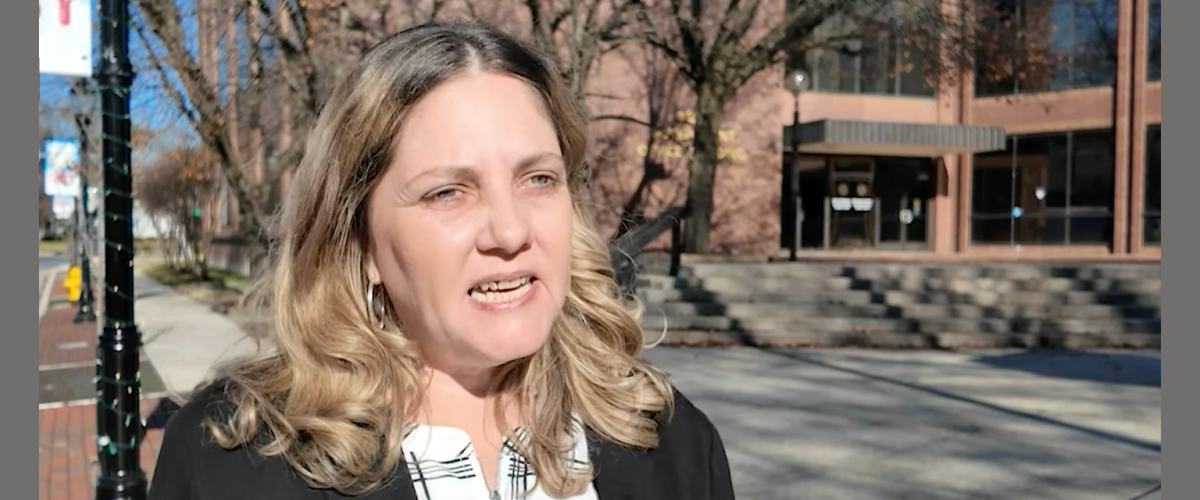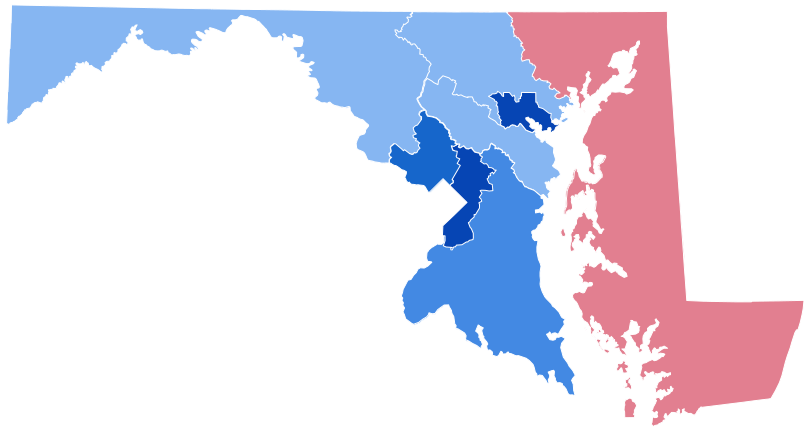Rick Pollitt, Snow Hill’s New Town Manager

Rick Pollitt announcing Allen Lions Club annual scholarship for service to community, 2016. Photo: Facebook
Richard Pollitt — Rick, to all who know him — is a native of the Wicomico County village of Allen, where he is active in the local Lions Club and in the village church, Asbury United Methodist.
Politics has been a tradition in the Pollitt family for at least three generations. Rick’s grandfather, Jesse M. Pollitt, served as the sheriff of Wicomico County and his father, Richard Malone Pollitt, was a retired judge of the Maryland Court of Special Appeals at the time of his death in 1992. Prior to that, he served as a Circuit Court judge in Wicomico County, beginning when he was appointed by Gov. Marvin Mandel in 1972.
Rick graduated from Washington College in 1974 with a major in political science. He began his career with another product of Allen, Phillip Banks, who owned a chain of convenience stores. Rick began as a clerk in one of the stores, but soon rose to become troubleshooter for the entire chain.
In 1976, he was hired to be the director of planning and zoning for Somerset County, beginning his long career devoted to public service. In 1984, he became city manager of Fruitland, just outside Salisbury. He served in that post for 22 years until 2006, when he decided to run for county executive of Wicomico County, a position that had just been established. He served two terms there, before being defeated by a Republican candidate. With his typical sense of humor, he commented that “they discovered that I was a Democrat and asked me to seek employment elsewhere!”
In 2015, he became city manager for Crisfield. He noted that he had known then-Mayor Lawson for years and liked and respected him. About Mayor Lawson, Rick commented that he was the most visionary man he had ever worked with. Unfortunately, the mayor couldn’t get his council to share his vision and chose not to run for the next term. Rick also chose to leave in 2020, and did volunteer work for one-and-a-half years during the covid-19 pandemic.
Meanwhile there had been some political turmoil in the town of Snow Hill in Worcester County. Charlie Dorman ran for mayor and won, but decided that he would rather be town manager. He was able to convince the town council to appoint him to that position, which led to some degree of tension in town. Subsequently, Dr. Jennifer Jewell was elected to the mayoralty in a special election. Mr. Dorman then resigned as town manager and Mayor Jewell began a national search for his replacement with a detailed public participation process. Pollitt was encouraged to seek the appointment and at first declined, but changed his mind after local friends encouraged him to apply. He was chosen unanimously by the mayor and town council for the position and commented that he has been impressed with the positive, can-do energy surrounding the community.

Aerial view of Snow Hill. Photo: snowhillmd.gov
Asked what are some of the problems that confront the town manager of a small Eastern Shore community, he responded that lack of resources is at the top of the list. Most of the towns suffer from aging infrastructure and lack the resources to replace or repair them. Snow Hill, he said, is dealing with aging sewer lines. The town has received some grants to reline parts of the system. Towns depend largely on state and federal grants.
Snow Hill, he said, also has a drainage problem due to rising water levels. One major park, Byrd Park on the banks of the Pocomoke River, floods frequently. Sturgis Park, where the town’s new riverboat, the Black-eyed Susan is docked, has a similar problem. Snow Hill received money from the American Recovery Plan Act and expects to get additional funding from Maryland’s $8 billion share of the recently passed infrastructure bill.

Snow Hill is on the Pocomoke River. Photo: Wikimedia Commons.
According to Pollitt, another challenge is finding the delicate balance between what services people expect and demand from their local governments and what they are willing to pay for them. The issue is especially harsh on much of the Eastern Shore, as economic conditions do not accommodate many people’s wish to fund higher levels of service. People want the services they think the government should provide, but many times are not willing or able to pay for them, when it comes to increasing revenues.
One exception, he said, occurred during his time as city manager of Fruitland. The community there wanted a 24-7 police presence, which would require a $.05 tax increase. At a town meeting, people supported the tax increase, even going so far as to ask the city council if the tax rate needed to go higher.
Conversely, he reported that during his term as county executive of Wicomico County (and still today), there was a tax revenue ceiling imposed by county voters after the county council approved a dramatic increase in the property tax rate after many years of no adjustments to the rate. Asked if as town manager during his career he had much interaction with county officials, he noted that he had in Somerset and in Wicomico and had every reason to expect that he would in Worcester.

Snow Hill’s town hall. Photo: Gren Whitman
At this point, he has only been in the position for two months. “Many challenges are too much for small communities to deal with on their own,” he said. “I’ve always strived for a regional approach to problem-solving. We simply have to find a way to share resources.”
Asked at the end of the interview if there were anything else he would like to add, he said that people often ask him why he does what he does. He said that his interest in politics dates back to the inauguration of John F. Kennedy. His parents attended the ceremony, while he watched it on TV at his aunt’s house. Even then he felt really caught up in Kennedy’s message of service. He went on to say that he honestly feels that he can say with a straight face, “I’m from the government and I’m here to help.”
Source:
Phone Interview with Richard Pollitt, Nov. 10, 2021
A native of Wicomico County, George Shivers holds a doctorate from the University of Maryland and taught in the Foreign Language Dept. of Washington College for 38 years before retiring in 2007. He is also very interested in the history and culture of the Eastern Shore, African American history in particular.
Common Sense for the Eastern Shore







